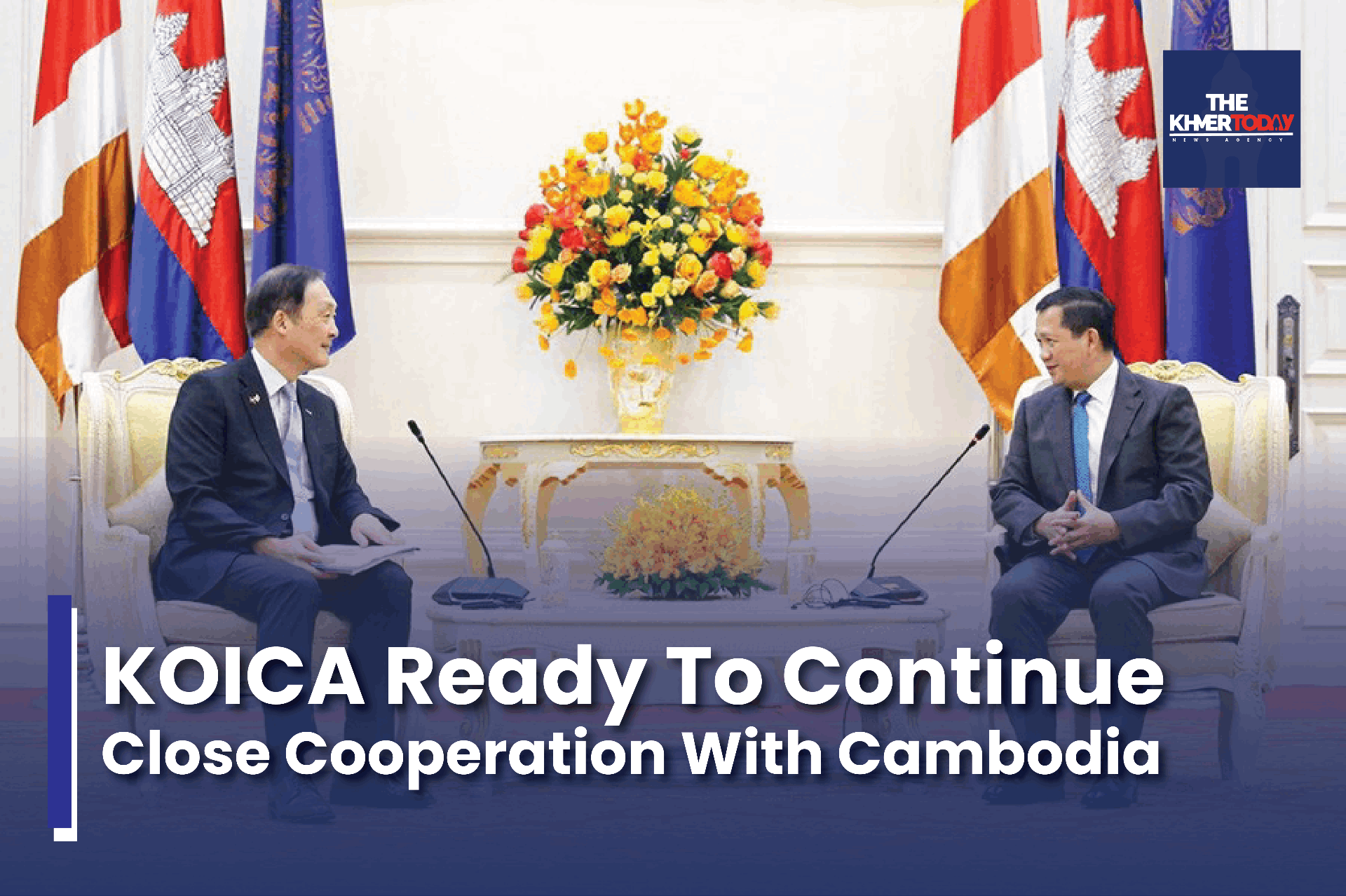KOICA Ready To Continue Close Cooperation With Cambodia

Phnom Penh, March 14, 2024 --
Korea International Cooperation Agency (KOICA) is ready to closely work with Cambodia to further strengthen and expand their bilateral cooperation.
The readiness was reiterated by visiting H.E. Chang Won Sam, President of KOICA while paying a courtesy call on Samdech Moha Borvor Thipadei Hun Manet, Prime Minister of Cambodia, at the Peace Palace in Phnom Penh this afternoon.
KOICA is committed to continue to highly value the cooperation and development partnerships with the Royal Government of Cambodia, H.E. Chang Won Sam underlined.
KOICA also vowed to continue its official development assistance (ODA) to Cambodia, as well as its cooperation through the synchronisation of development programmes and the Pentagonal Strategy-Phase 1 of the Royal Government of Cambodia to contribute to the achievement of Cambodia's goals and vision, he added.
In addition, the KOICA president reaffirmed his continued support for demining activities and praised Cambodia for being elected to chair and host the 5th Review Conference of the Mine Ban Convention – the Siem Reap-Angkor Summit on a Mine-Free World – in November in Siem Reap cultural province.
H.E. Chang Won Sam said Cambodia is the first country in Asia he has visited since he took over the presidency of KOICA in 2023. He also noted positive changes and rapid progress of Cambodia compared to his previous visit in 2006.
For his part, Samdech Thipadei Hun Manet spoke highly of the relations and cooperation between Cambodia and the Republic of Korea, especially in the areas of economy, trade and investment, contributing significantly to the socio-economic development of Cambodia.
The Cambodian Premier thanked the Korean government through KOICA for having provided and continue to provide ODA to Cambodia.
Samdech Thipadei told his guest of Cambodia’s vision of becoming a high-income economy by 2025 as well as the introduction of five key measures and six priority policies focusing on human capital development, the indispensable condition to boost diversification and inclusive and resilience economic growth.